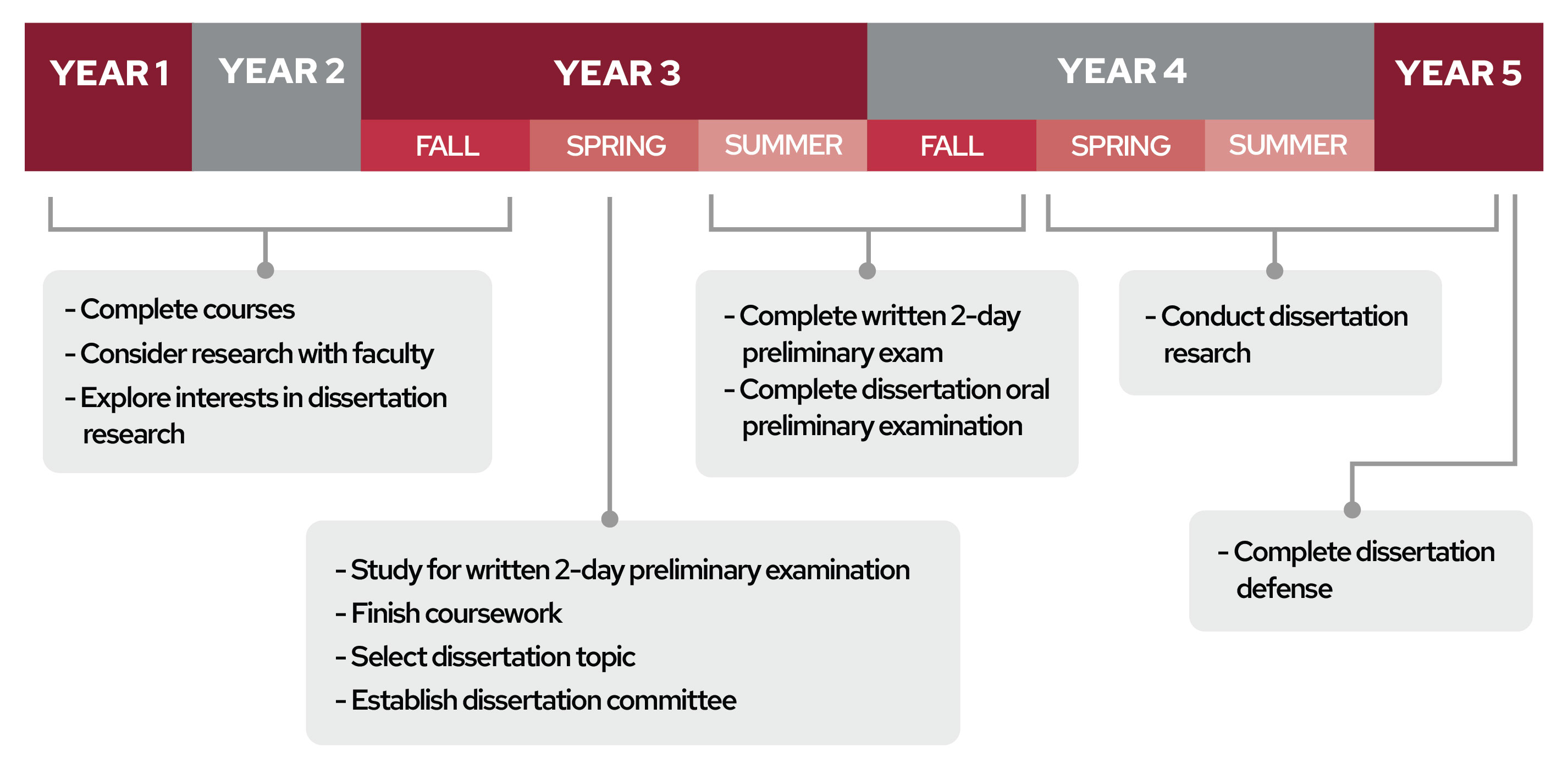Credit Transfer from Other Graduate Institutions
According to the Graduate School’s policies, a student’s program may decide to transfer graduate credits completed at another institution (earned post-baccalaureate). There are no limits on the number of credits that can be transferred except that the program’s minimum graduate residence credit requirement can be satisfied only with courses taken as a graduate student at UW–Madison. To meet minimum graduate residence credits, PhD students need to earn at least 32 credits at the University of Wisconsin–Madison. Credits earned five or more years prior to admission to a master’s degree or credits earned ten or more years prior to admission to a doctoral degree are not allowed to satisfy requirements. To initiate the process of having transfer credits evaluated, an unofficial transcript your prior institution(s) should be emailed to the DGS with your advisor and the GPM cc’d.
Expectations for Progress
The expected time frame for completion of the overall MS/PhD program in the HSRP program is four or five years. The HSRP PhD program is designed so that a full-time student entering the program with an MS can complete the PhD program in approximately 3-4 years. To remain in the HSRP MS/PhD program, a student must continue to make progress toward the degree and demonstrate this progress via the Annual Review process.3

HSRP faculty and students will engage in this annual review process twice per academic year. In Spring, students and faculty will pay particular attention to timelines and milestones identified from SMART Goals when submitting documentation for review, which include but are not limited to: discussing courses, developing independent development plan (Individual Development Plan), summer funding, research proposals, attending conferences, giving presentations, identifying a thesis topic, completing the thesis, identifying a PhD topic, forming a PhD committee, taking the written preliminary exam, writing and defending a PhD proposal, submitting and publishing manuscripts.4 5
__________
3 The Graduate Program Manager will provide access to Annual Review documents throughout the academic year.
4 The UW Graduate School has also established Minimally Acceptable Progress guidelines. The Health Services Research in Pharmacy graduate program guidelines take precedence.
5 To best determine future progress, during the recruiting cycle (likely January-February) students with a master’s degree will work with their potential advisor and the Director of Graduate Studies to assess the experience with an empirical project relevant to HSRP research. If the degree has limited relevance to HSRP, the student may be required to complete.